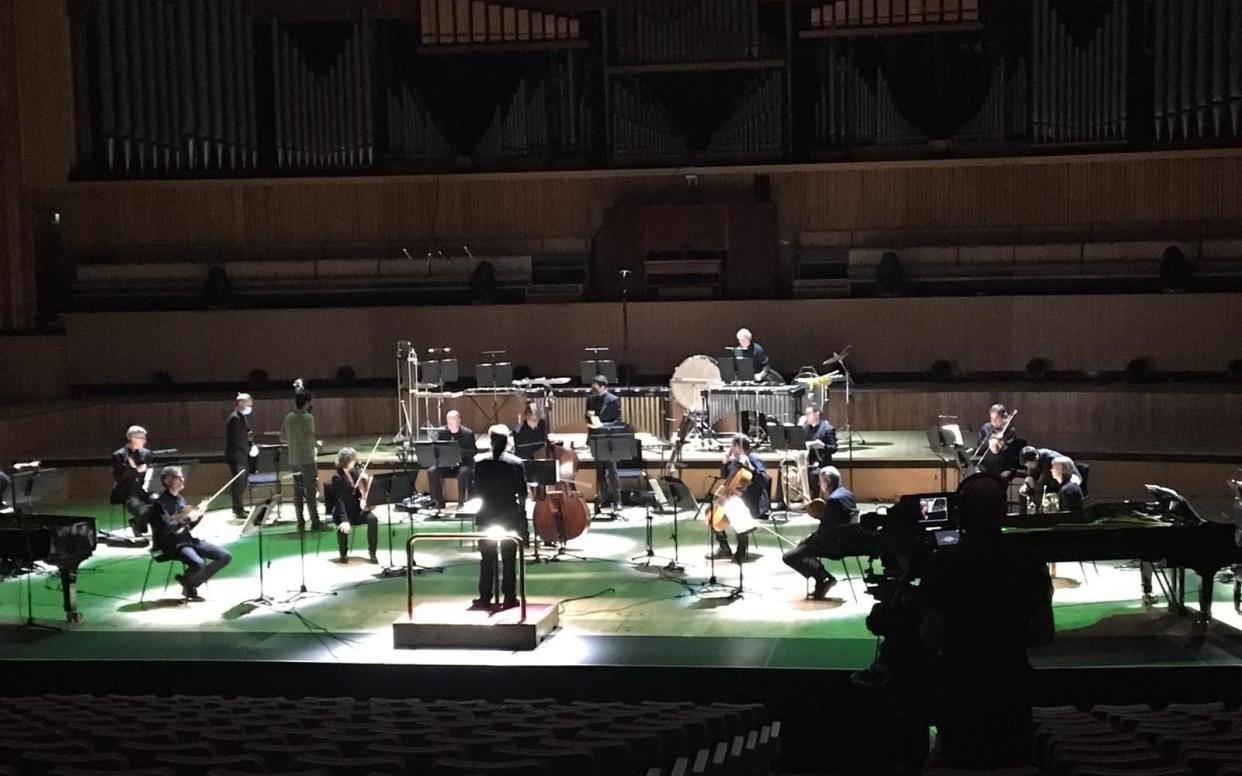Huddersfield Contemporary Music Festival, review: ‘a great feat of ingenuity and determination’

Britain's best-known festival of cutting-edge new music has just taken place in the midst of a pandemic, a great feat of ingenuity and determination. Inevitably its wings were severely clipped; the normal two-week duration had shrunk to a long weekend, the musical forces were modest and the musicians were nearly all UK-based. Much of the music-making actually took place in the BBC’s Maida Vale Studio or the Southbank.
But the sense of extravagant, happy jamboree was re-created, through a mix of broadcast and online filmed concerts, short films and interviews. Much of the music was in that grey area between sound installation, documentary and actual music, a difficult category to judge or even relate to.
It was often hard to resist the impression that the music was merely a desultory and dispensable commentary on pre-recorded “real-life” material already saturated with meaning; a Lebanese singer, an eye-witness account of the Rwandan genocide, the sound of birds in a forest, Berlin street-noises.
It was a relief to encounter one or two pieces where the musical material actually took on a life of its own, such as Hannah Kendall’s taut, precise “Tuxedo: Hot Summer no Water”.
The biggest piece of the weekend, a teaming, rich 50-minute fantasy named Pharmakeia by 70-year-old Scottish composer James Dillon was on a different level of seriousness.
When Dillon first appeared on the scene as a long-haired ex-rocker in the 1980s he seemed the quintessential outsider; now his painstakingly detailed music, animated by arcane interests in Greek mythology and Renaissance philosophy, make him seem a stout defender of the high ground.
He tells us this piece is about “the ritual of music itself, its performance, its sorcery,” and it launched off with a melody for muted trumpet and trombone that did indeed sound like an inscrutable ceremonial.
As always with Dillon, simplicity was soon shrouded in dense shifting clouds of sound, underpinned by gauzy strings and a tremulously glutinous vibraphone, and shot through with gleams of piano arabesque. Just as I was getting impatient with the music's endless circlings, something captivating would appear: a major chord, an almost-Wagnerian harmony, a tolling repeated figure.
It was like a vast slow-moving river, full of sudden quick eddies, in whose murky depths a half-decayed fragment of something precious and highly wrought would arise and then sink again. The London Sinfonietta under Geoffrey Paterson played with devoted care to the music's subtly transforming sonorities.
This feeling of mournful loss was if anything even more pronounced in the concert’s other Dillon premiere: a 30-minute piece for piano named Echo the Angelus, cast in a three-section form that actually echoed the Catholic prayer. In this wonderfully focused and sensitive performance from Noriko Kawa, its chiming incantations and luxuriant decorative flurries, constantly invaded by silence, took on a strange power to move.
To hear this concert and other highlights from HCMF go to the New Music Show on BBC Radio 3 at bbc.co.uk/sound and hcmf.co.uk

